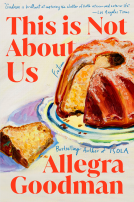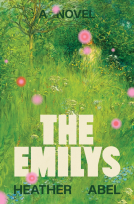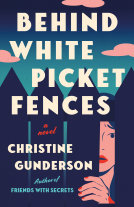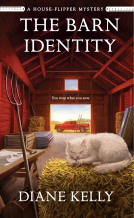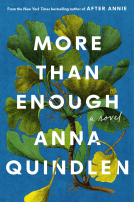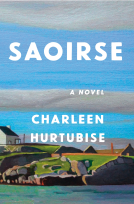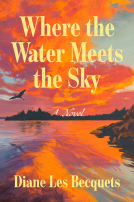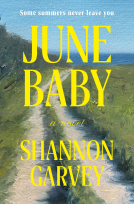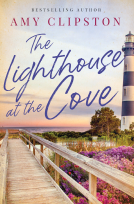
Watkins Glen
by Eleanor Lerman
This title was previously available on NetGalley and is now archived.
Send NetGalley books directly to your Kindle or Kindle app
1
To read on a Kindle or Kindle app, please add kindle@netgalley.com as an approved email address to receive files in your Amazon account. Click here for step-by-step instructions.
2
Also find your Kindle email address within your Amazon account, and enter it here.
Pub Date Jun 02 2021 | Archive Date Jun 30 2021
Talking about this book? Use #WatkinsGlen #NetGalley. More hashtag tips!
Description
AWARD-WINNING POET RELEASES FIFTH NOVEL CENTERED ON A RECKONING WITH AGING, ILLNESS, AND THE BOND BETWEEN SIBLINGS
After her older brother Mark is diagnosed with Alzheimer’s, Susan takes him to the town of Watkins Glen, their childhood vacation spot in the Finger Lakes, for what she believes is a temporary stay. But living in Watkins Glen, famous for hosting world-famous sportscar races, presents some very difficult challenges for both Susan and Mark alike. In particular, Mark has developed a rare but well-known symptom of dementia called Acquired Artist Syndrome, whereby people who have never even thought about painting suddenly become obsessed with the art. Once Mark gets to Watkins Glen, he becomes possessed by the idea that there is a Loch Ness-like monster living in nearby Seneca Lake and he begins painting the creature, while Susan reckons with ongoing ecological damage in the area.
In her newest release, Watkins Glen [Mayapple Press, June 2021, ISBN: 978-1-952781-01-8], award-winning poet and author Eleanor Lerman tells a deeply human story about how the forces of time and fate steer our lives in unexpected directions, including how the relationship between a brother and sister can change and deepen, even after years of estrangement. Another key focus of the book is how Susan, a woman who came of age in the era of hippies who thought they would never grow old and held fast to a belief in social and cultural revolution, struggles to figure out who she is now as illness, financial worries, and diminishing expectations affect her view of life.
Regardless of your stage of life, Watkins Glen is a moving story that will prompt readers to think about the necessity of finding both hope and meaning in our lives as we progress, together, through the years ahead. In the novel, Susan dutifully takes on the role of caretaker when she learns of her brother’s worsening condition and must make difficult decisions about his health and his future. As Mark continues to wander off along the eroding coastline of Seneca Lake in search of his Loch Ness monster, spurred on by premonitions of the past that lead to dangerous misunderstandings, Susan is faced with a slew of impossible choices that will affect the destiny of both siblings.
About the Author:
Eleanor Lerman, who lives in New York, is the author of numerous award-winning collections of poetry and short stories, as well as four previous novels. She is a National Book Award finalist, winner of the inaugural Juniper Prize for Poetry from the University of Massachusetts Press, the recipient of the Lenore Marshall Poetry Prize from the Academy of American Poets, and was awarded a Guggenheim Fellowship as well as fellowships from the National Endowment for the Arts and the New York Foundation for the Arts. Her poetry, short stories, and essays have appeared in countless literary journals, magazines, and other publications, both in print and online. In 2016 her novel, Radiomen (The Permanent Press), was awarded the John W. Campbell Prize for the Best Book of Science Fiction. In 2019, her novel Satellite Street (The Permanent Press, 2019), was a finalist for both the Montaigne Medal and the Eric Hoffer Award. Watkins Glen, her most recent novel, will be published by Mayapple Press in the spring of 2021.
...
Available Editions
| EDITION | Paperback |
| ISBN | 9781952781018 |
| PRICE | |
Average rating from 7 members
Featured Reviews
Susan is in her sixties and has made a life for herself in Watkins Glen, where her family spent the summers of her childhood while her father raced drag cars. That summer life came to an end when her parents died when she was a teenager, and she and her brother went to live with relatives. In adulthood they drifted apart.
Susan's life is interrupted by a phone call from her nephew, who is worried about his father, Susan's brother Mark. So begins a series of events which leads to Mark, who is in the early stages of Alzheimer's disease, coming to live with Susan. Her life is upended as she struggles to cope with his increasing confusion, his obsession with painting, and his belief in a strange monster living in the nearby lake.
This is not an easy read. Mark's deterioration is ongoing and unstoppable, and the moments of lucidity, where he and Susan are able to connect and make some sort of sense of their childhood together and their adulthood apart, make this all the more poignant. Both Mark and Susan are well-drawn characters, and I felt deep sympathy for both as the book progressed.
The prose is beautiful, as are the descriptions, but I did find that some passages were just too slow, and the whole thing felt repetitive in places. Although that probably added to the realism of the novel.
On the whole, this was an enjoyable and enlightening read.
With thanks to NetGalley and Mayapple Press for the advance reader copy of this title.
This moving story about an independent woman living in a hamlet outside Watkins Glen, NY, who takes in her brother who is afflicted with Alzheimer’s, nearly brought me to tears. Although fiction, the book could well have been non-fiction, as it described the complicated relationship between two practically estranged siblings brought together by the deterioration of the brother. In an act of truly selfless love, Susan negotiates life with her brother, Mark - a brother who is becoming someone she doesn’t know, and someone he doesn’t know himself.
My mother had Alzheimer’s, and before my sisters and I moved her to a care facility, we had a series of caregivers and helpers, some more successful than others, helping her to live as independently as possible. Living with a parent or sibling who has this disease is an extended period of living grief, and Eleanor Lerman captures what this is like so perfectly that she must have had personal experience with it herself. While it was hard to read at times, the interplay between Mark and Susan and Susan’s struggle to figure out her own life as an aging single woman just hit me right in my heart.
I received this book as an ARC from the publisher and NetGalley.
Orphaned as adolescents, Susan and her brother were raised by distant relatives, devout Orthodox Jews. Susan rebelled, her unresolved grief taking the form of a lifetime of anger and hostility, while Mark tried to be a model boy to his difficult new family. This is suggested in flashback, as the story begins with sixty-five-year-old Susan taking a worrying phone call about Mark from his adult son. Steven says his father doesn't sound right, and is suddenly obsessed with painting, an interest he’s never before revealed in his seventy years.
When Mark cries on the phone, Susan drives the five hours to Brooklyn to check on him. After several more visits, and Mark's increasing confusion, the only logical choice is for her to bring him home to her place, an rickety, drafty house she rents, all she can afford. She lives in the village of Watkins Glen, famous racing venue, where she and Mark and their parents spent every summer happily immersed in the world of hot cars, the last place Susan and Mark were happy. In essence, Susan is stuck. Mark's presence, however demanding, helps her move forward.
Susan is an old hippie. She supports herself by working part-time at a struggling gift shop, and by foraging for inexpensive or discarded household items, which she resells online. As the story unfolds, she is challenged to finally have to take care of someone else, generosity that doesn’t come naturally to her, since she’s spent so much of her life in a defiant stance. She’s also resisted the reality of the years passing, so taking care of an elderly brother who’s losing his mind wasn’t in her plans. Susan’s self-image is set in her youth, although in the beginning of the novel, she reflects on an elderly neighbor, whose voice “...sounded seriously old, although I know that for me, now...the distance between some elderly person and myself is not the long and winding road I once perceived it to be.”
As Susan adjusts to having Mark in her home and adapts to his needs, there’s a tenderness that emerges, a gentle protectiveness. Beyond the elegiac nostalgia of their childhood memories and survivor status, this is a universal story of having to take in a loved one who has no remaining options. Susan can’t afford it, she’s not equipped, and she didn’t plan to dedicate her life to anyone but herself. How is this going to work? For how long? And what then?
The author is a poet as well as a writer, and so much of this book was lyrically written and beautiful. Here is one example: “(It) was one of those days when the air is cool and thin and the light is silvery; a day that feels like it is made out of glass and everything is just one breath away from shattering beyond repair,” and “It was still light for part of the way, that somber autumn light that spreads itself over the ocean and then reaches out, in blue and gold streaks, to cross the Hudson River and climb above the New Jersey Palisades, heading ever west.”
This narrative was so realistic I kept thinking it was Eleanor Lerman’s story, but it’s fiction. It will resonate with anyone trying to thoughtfully navigate the latter half of their life with or without the challenge of caregiving. A beautiful literary work.
Deep story of two estranged siblings that are brought back together by the horrific diagnosis of Alzheimer’s. Mark lives alone in Brooklyn and reluctantly moves in with his sister who resides in Watkins Glen, near their childhood summer home. Mark has a found a fondness for painting. This is a sad story of love, sacrifice and the many challenges one faces when a loved one falls victim to Alzheimer’s.
Readers who liked this book also liked:
Leodora Darlington
General Fiction (Adult), Mystery & Thrillers, Women's Fiction
